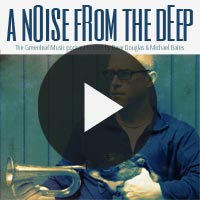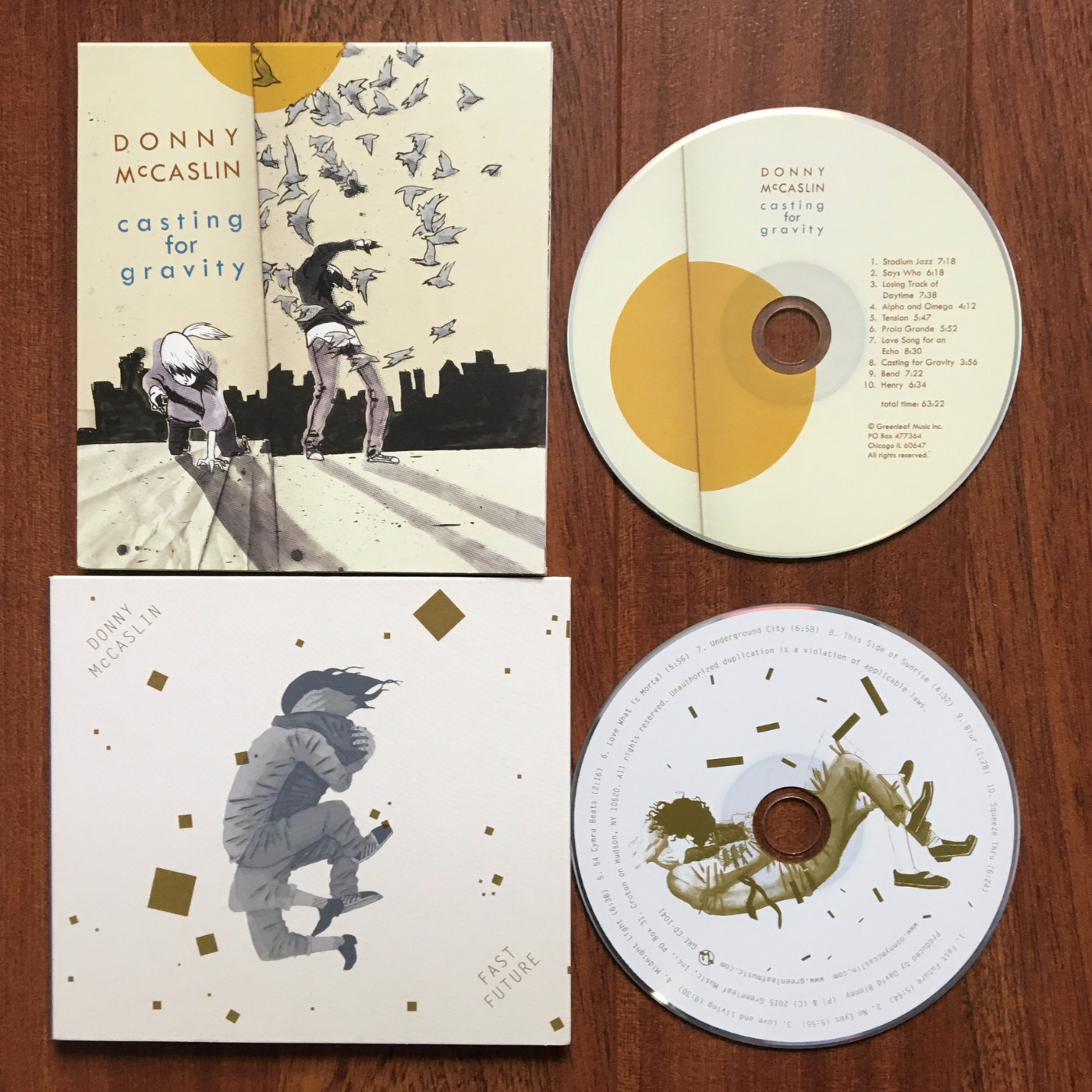Donny McCaslin has a Fast Future
The only thing predictable about Donny McCaslin’s first ten albums was their unpredictability. Each new release arrived with a new line-up and not infrequently a new direction, often providing the perpetually curious saxophonist/composer with fertile new ground to explore.
 On the surface, what makes McCaslin’s latest release, Fast Future, something of a radical departure from his usual M.O., is that it reprises the stunning electro-acoustic quartet from its groundbreaking, critically-acclaimed predecessor, Casting for Gravity – a project that earned McCaslin a 2014 GRAMMY® nomination for “Best Instrumental Jazz Solo” on the track “Stadium Jazz.” However as the title implies, Fast Future finds McCaslin and company – keyboardist Jason Lindner, bassist Tim Lefebvre, and drummer Mark Guiliana, along with longtime producer David Binney – hurtling further into the relatively unexplored crossroads between jazz and electronica with virtuosic musicianship. Long influenced by fusion pioneers like Weather Report and Herbie Hancock’s Headhunters, McCaslin integrates those hybrid instincts with innovative modern artists like Aphex Twin and Skrillex.
On the surface, what makes McCaslin’s latest release, Fast Future, something of a radical departure from his usual M.O., is that it reprises the stunning electro-acoustic quartet from its groundbreaking, critically-acclaimed predecessor, Casting for Gravity – a project that earned McCaslin a 2014 GRAMMY® nomination for “Best Instrumental Jazz Solo” on the track “Stadium Jazz.” However as the title implies, Fast Future finds McCaslin and company – keyboardist Jason Lindner, bassist Tim Lefebvre, and drummer Mark Guiliana, along with longtime producer David Binney – hurtling further into the relatively unexplored crossroads between jazz and electronica with virtuosic musicianship. Long influenced by fusion pioneers like Weather Report and Herbie Hancock’s Headhunters, McCaslin integrates those hybrid instincts with innovative modern artists like Aphex Twin and Skrillex.
“I really love the sonic textures and ambient vibe that you hear in a lot of that music,” says McCaslin of the influence that electronica and EDM (Electronic Dance Music) has had on his music. “Having these guys improvising and interacting within that sonic landscape feels great.”
“…[McCaslin] may prove to be an important portal for expanding the shrinking jazz audience.”
– The Huffington Post
At the core of even the most adventurous soundscapes on Fast Future – McCaslin’s fourth album for Greenleaf and the first release during the company’s 10th anniversary year – are similar sensibilities that have fueled McCaslin’s acoustic music, namely vigorous melodies, taut interaction, and the leader’s instantly recognizable, brawny tenor voice. Take “No Eyes,” a cover of a song by Baths, the alter ego of L.A.-based electronica artist Will Wiesenfeld. Atop the electronic synth-bass throb sits a gorgeous, singable melody, which Binney enhances via transcendent wordless vocals (an element that was not previously highlighted on Casting for Gravity).
“Sometimes in the electronica realm there’s not enough harmonic movement or melody for me,” McCaslin says. “But that song is a beautiful tune in and of itself and you could play it in a variety of ways.” It is in this overall spirit that Fast Future showcases McCaslin in a slightly more commercial context, featuring production tendencies that are more often reserved for non-jazz projects. “Greenleaf has again provided an opportunity for me to experiment and that comes from the openness and sensibility of Dave Douglas,” says McCaslin, who was a member of Douglas’ quintet.
McCaslin is well known for his standout playing in the Maria Schneider Orchestra (having recently been featured on the David Bowie/Maria Schneider collaboration, “Sue”) and Ryan Truesdell’s Gil Evans Project, and he compares the feeling of playing amid lush electronic environments to soloing against those vivid big-band backdrops. “Standing and playing in front of this bed of beauty is such a joy,” he says. “It’s so awesome to be surrounded by such deep music.”
From the bombastic grooves of the title track, through the lustrous ballad “Midnight Light” and the frantic free-jazz mutation of Aphex Twin’s “54 Cymru Beats,” to the final dub-tinged stealth of closer “Squeeze Thru,” which evokes McCaslin’s youth in Santa Cruz, seeing reggae legends like Jimmy Cliff, Peter Tosh, Mighty Diamonds, and Burning Spear live, Fast Future offers a thrilling vision of the shape and redefinition of jazz to come.
Order Physical and Digital now on Bandcamp
Order Digital now on iTunes
Featuring Jason Lindner, Tim Lefebvre, & Mark Guiliana. Produced by David Binney.


